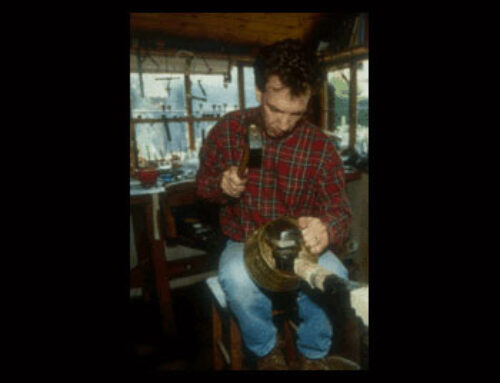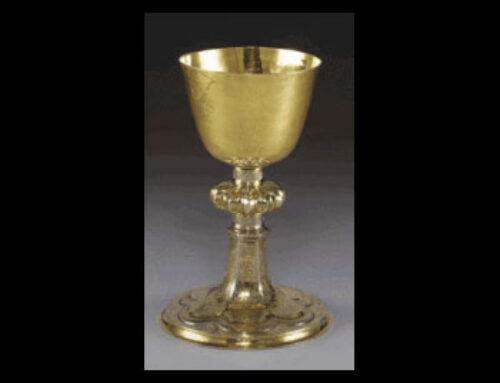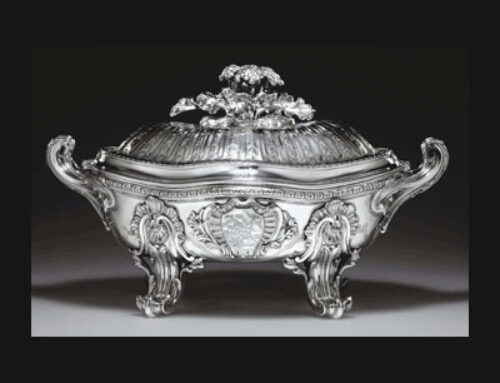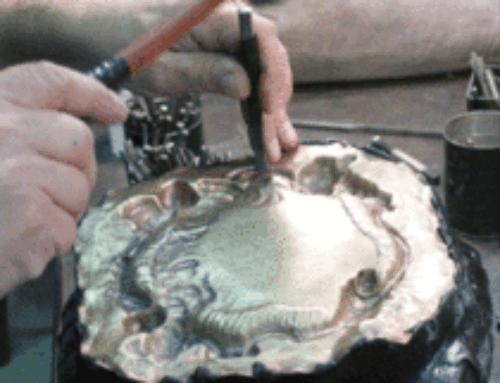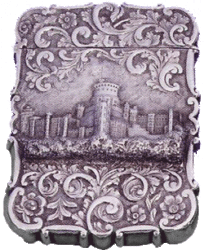
Smallwork
The term smallwork covers a wide range of items made for personal use, as souvenirs and gifts, as novelties. It includes bits and pieces for the desk or dressing table, smoking, card games, toys for children and adults, and things to have about your person, such as buttons, buckles, seals, lorgnettes, an etui, or a walking stick. In addition, smallwork can include equipment for various sporting pursuits (silver spurs for example), also wine accessories, medical instruments and toiletries, sewing equipment, medals and small scientific instruments such as pocket sundials.
However if you are looking for these things at auction, they are now very often to be found in specialist collector sales rather than with silver. There is logic in this, although silver sales are poorer and duller for it.
Another important item that attracts a large following amongst collectors, is spoons. They are attractive to collectors and connoisseurs because they are amongst the earliest pieces to survive and their study therefore covers a wide date range; and because there is an almost infinite variety of designs. Their importance to scholars lies in the marks. They are often the only source for identifying work in provincial towns, and thus understanding networks of manufacture and trading outside capital cities.
Making these objects required specialist skills and when registering his mark, a craftsman would be categorised as ’goldworker’, ’smallworker’ (or ’largeworker’). However much of their work was exempted from hallmarking if the amount of gold or silver used was below a minimum weight, for example, mounts for enamel, tortoiseshell or hardstone boxes. We are likely never to identify the names of these craftsmen. Not only individuals, but towns too, specialised in the manufacture of certain articles. In Britain, Birmingham became the centre for such wares, worked in brass as well as silver, particularly at the cheaper level.
View list of relevant Silver Studies articles

